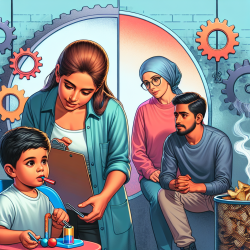Understanding the Compliance Checklist for Special Education in Washington
For educators and administrators working in special education, navigating the myriad of compliance requirements can often feel overwhelming. The Washington General File Review Checklist provides a structured approach to ensuring that all aspects of a student's Individualized Education Program (IEP) are in alignment with state and federal regulations. This blog will delve into the key components of this checklist, offering insights into how schools can maintain compliance while providing quality education to students with special needs.
Key Areas of Compliance
The checklist is divided into several critical areas, each focusing on a different aspect of the IEP process. These include:
- Meeting Notices (MN): Proper notification is crucial. According to IDEA §300.322(a)(1), meeting notices must be provided at least 8 days prior to the IEP meeting, ensuring all necessary members are informed and can attend.
- General Supervision (GS): This includes ensuring that IEP amendments are properly documented and that parents receive copies of amended IEPs. It also involves providing prior written notice for any changes.
- Eligibility (EL): Parental consent and input are vital for initial evaluations and reevaluations. The process must include documented attempts to obtain parental input and ensure evaluations are consistent with eligibility criteria.
- IEP Services (SR): Supplementary and special education services must be clearly identified and justified within the Present Levels of Educational Performance (PLEP) narratives.
- Assessments (AS): All statewide assessments must contain appropriate accommodations that align with documented student needs, ensuring fair testing conditions.
- Least Restrictive Environment (LRE): The extent of participation with non-exceptional students must be clearly documented, explaining any deviations from the general education curriculum.
Why Compliance Matters
Compliance with these guidelines is not just about ticking boxes; it ensures that students with special needs receive the education they deserve in a supportive environment. By adhering to these regulations, schools can provide tailored educational experiences that foster growth and development, preparing students for future success.
How TinyEYE Can Help
At TinyEYE, we understand the complexities of managing special education programs. Our online therapy services are designed to support schools in meeting these compliance requirements. We offer customized therapy sessions that integrate seamlessly with a student's IEP, ensuring that all educational and therapeutic goals are aligned.
Conclusion
Staying informed and proactive about compliance can make a significant difference in the educational outcomes for students with special needs. By utilizing resources like the Washington General File Review Checklist and partnering with services like TinyEYE, schools can enhance their special education programs, providing students with the tools they need to succeed.
For more information, please follow this link.










